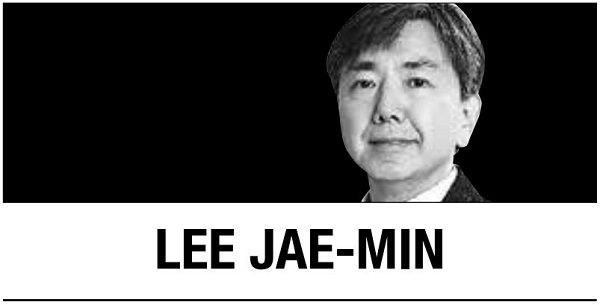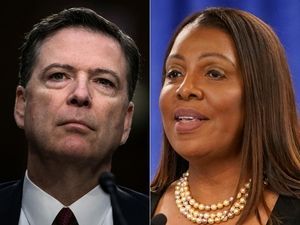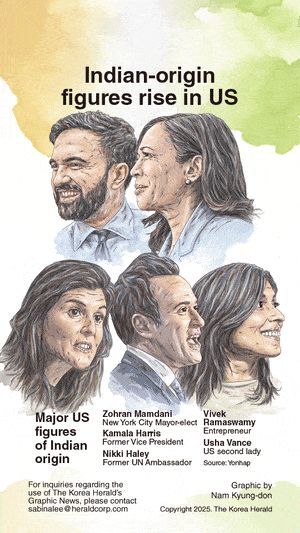 The United States Supreme Court seems to be on a fast track for its review and deliberation of the fentanyl and “reciprocal” tariff measures of the Donald Trump administration. During oral arguments on Nov. 5, some of the justices raised critical questions expressing skepticism about the legality of the tariffs. The core question is whether the International Emergency Economic Powers Act of 1977 gives the president the authority to impose such sweeping tariffs. Of course, there is no telling what the final disposition will be — harsh questions and critical tones might not necessarily dovetail with the final voting.
The United States Supreme Court seems to be on a fast track for its review and deliberation of the fentanyl and “reciprocal” tariff measures of the Donald Trump administration. During oral arguments on Nov. 5, some of the justices raised critical questions expressing skepticism about the legality of the tariffs. The core question is whether the International Emergency Economic Powers Act of 1977 gives the president the authority to impose such sweeping tariffs. Of course, there is no telling what the final disposition will be — harsh questions and critical tones might not necessarily dovetail with the final voting.
The judgment is expected to be released toward the end of the year at the earliest. It comes at a particularly fraught time. If the tariff measures are found illegal, the tariff train will grind to an abrupt halt. US importers who paid the reciprocal tariffs for several months would be refunded. That’s right — it is not foreign exporters, but American importers who are entitled to the refund. The total amount of a refund is estimated to be between $100 billion and $200 billion.
Refund aside, what would then happen to the “package deals” that have been reached between Washington and other countries if the tariff measures are found illegal? Caught in a tariff vise, the UK, EU, Japan, South Korea, Vietnam, the Philippines and Indonesia have agreed on respective settlement packages with the US over the course of the past several months. What is their fate after an adverse Supreme Court decision? Will they still stand regardless or will they just dissipate?
Notably, these package deals, reduced to joint fact sheets or condensed to memorandums of understanding, are not legally binding. They are not treaties, nor international agreements; both the US and its counterparts agreed that their instruments are nonbinding. Instead, these instruments simply constitute diplomatic and political commitments to settle outstanding bilateral issues.
It would then follow that since these documents are legally nonbinding without specific rights and obligations, they are not legally tied to the tariffs and thus they, as stand-alone documents, are not necessarily affected by the fate of the tariffs. So, even if tariffs are struck down by the Supreme Court, the promises made by other countries could still stay, the logic would go. This appears to be the line of argument that Washington would advance in the case of an adverse ruling as it will try to save and adhere to the settlement packages.
Could such a legalistic approach save the deal? Unpredictable but quite doubtful.
Even if the instruments are nonbinding and political and diplomatic in nature, they still stand on commitments made by both sides with the US reducing tariffs and the other countries buying US products and making US investment. If the highest court determines the fentanyl and reciprocal tariffs illegal, the tariffs would be gone instantly and retrospectively, hence the refund. Then, there is nothing to “reduce” from the beginning. As such, at that point the commitment made by the US is not capable of being performed.
Should things come to that, most likely other countries would not be able to carry out their own commitments either.
It is not about whether they are released from their legal obligation to perform. The instruments are not legally binding. It would be the domestic reaction that exerts control. Likely, domestic political pressure would not allow the governments of these other countries to undertake to fulfill the commitments even if the tariffs are automatically scrapped. Whatever was agreed would be suspended at best, if not killed entirely.
By way of example, the massive investment of $350 billion that Korea promised to the US would probably not be implemented because of public outcry should the tariffs evaporate. Technically and legally, Korea’s investment is not tied to the tariff reduction of 10 percent, bringing it from 25 percent to 15 percent. But it has been so well-advertised by both sides that the tariff reduction was practically the sole reason for the negotiation and the final settlement package. Should the tariff measures crumble, the two countries would have to negotiate again.
Officials in the Trump administration say they will find another legal basis even if the tariff measures are struck down. There are other statutory bases for the US president to impose tariffs on imported products. For instance, Section 232 would be one option. Section 301 might be another. Conventional trade remedy measures would be yet another option. But all these are product-specific or industry-specific, and require respective investigations that theoretically take time. Such requirements do not exist in IEEPA, which is perhaps why Washington chose the avenue in the first place.
This would mean two things. Should the current tariff measures be found illegal, the bilateral agreements would be either suspended or rescinded. The US government would initiate an investigation for the imposition of a new tariff measure. The investigation would take several months to satisfy required procedural points. The amounts of tariffs and the products or industries to be sanctioned would be finalized at the end of the investigation. New negotiations would begin at that point, taking another several months. All in all, chances are, it would eat up pretty much the bulk of next year.
The upshot of it all is that there would be a forced timeout and cooling-off period between the date of the ruling and completion of new investigations. The period could be at least several months. For what it is worth, it may be a good opportunity for Washington and its trading partners to consider bilateral trade from a more practical point of view. After a yearlong tariff tempest, it may offer a moment for pause and reflection. They can consolidate thoughts. A practical solution may emerge in the interlude.
On Nov. 2, Trump described the impending Supreme Court ruling as “one of the most important and consequential decisions ever made by the United States Supreme Court.” It will be for other countries as well.
Lee Jae-min
Lee Jae-min is a professor of law at Seoul National University. The views expressed here are the writer’s own. — Ed.
- Finance chief says S. Korea’s economy at ‘turning point’ to reshape growth trajectory for decades
- Ruling party submits special bill on investment in US under tariff deal
- Trump adds Thanksgiving turkeys to his pardon list
- Biz sentiment reaches 1-yr high in Nov. on semiconductor boom: BOK survey
- S. Korea’s Nuri rocket enters final check stage ahead of early Thurs. launch










Most Commented